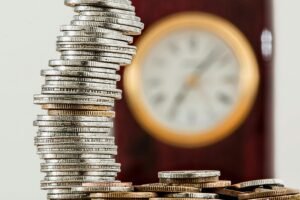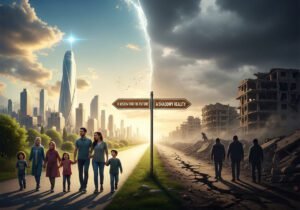What If We Get It Right? Reimagining a Nation’s Future
For more than a decade, the story of my homeland, Syria, has been a relentless accounting of loss. It has been defined by everything that went wrong: the humanitarian catastrophe, the failed state, the unsolvable problem. The global narrative has been one of despair, and for good reason. The devastation is real, the trauma is deep, and the path forward is shrouded in uncertainty.
But what if that isn’t the end of the story?
This question has driven me for years, not as an academic exercise, but as an act of refusal. A refusal to accept that the story of Syria must end in its rubble. It is a question that is rarely asked in the corridors of power or in the pages of policy reports, but one I believe is essential: What if, after all this, we get it right?
The Paradox of the Forest Fire
In the great forests of Yellowstone, the Lodgepole Pine has a remarkable survival strategy. Its cones are sealed shut with a hard resin, and they can lie dormant on the forest floor for decades, waiting. They are designed to open and release their seeds only when exposed to the intense, destructive heat of a wildfire. The very catastrophe that destroys the old forest is the necessary trigger for the new one to be born.
The fire doesn’t just clear the dead wood; it unlocks a hidden potential that was there all along.
This is the lens through which we should see Syria. The fire that consumed the nation did more than just clear the ground. It revealed a hidden feature of its society, a paradox that could be the secret to its renewal. For fifty years, Syria was a rigidly centralised state. This top-down structure was its greatest weakness; it bred corruption, stifled innovation, and made the system so brittle that it ultimately shattered.
But what happens when that same cultural muscle-memory for rapid, large-scale, centrally-directed action is put in the hands of a new, transparent government with a radically different vision?
Suddenly, the greatest weakness becomes an astonishing strength. The ability to mobilise and execute a national strategy with speed and unity, once a tool of authoritarian control, could become the engine for a 21st-century leapfrog. It could allow Syria to build a national renewable energy grid, a universal digital ID system, or a network of modern railways with a velocity that would be unimaginable in more decentralised, consensus-driven societies.
More Than Bricks and Mortar
This isn’t just about building things quickly; it’s about building a new society intentionally. The greatest challenge, and the most profound possibility, is not rebuilding cities, but rebuilding trust. For every physical wall that crumbled, an invisible one was built between neighbours and communities.
A rapid, coordinated reconstruction provides a unique tool to tear down those invisible walls. By mandating that these large-scale projects use mixed-community work crews, and by designing new neighbourhoods with shared public spaces and integrated services, we can use this speed to create the very conditions for trust to be rebuilt. We are not just waiting for social cohesion to emerge organically; we are building the physical and economic structures that manufacture it through shared work and shared purpose.
An Invitation to a New Conversation
This is not a work of naive optimism. The challenges are monumental. But to focus only on the obstacles is to miss the incredible possibility that lies within this moment. The path to a failed state is wide and well-trodden; it requires little imagination to map. The purpose of my work is to rigorously explore the opposite possibility.
My new book, Rewriting the Rules: A Vision for Syria’s Sustainable Reconstruction, is an attempt to write this new playbook. It is not a prediction, nor is it a blueprint set in stone. It is a vision. It is an invitation to a conversation about what could be possible if we harness this unique alignment of forces, technological, financial, and social.
It is a framework for investors, policymakers, and for Syrians at home and abroad, to begin the collective work of shifting our focus from managing a tragedy to building a miracle.
The old rules have been shattered. It is time to write new ones, together.
This article explores the core vision of my new book. To discover the full, practical roadmap for how Syria can be rebuilt using the principles of sustainable finance, resilient governance, and social healing, join the waiting list below to order your copy of Rewriting the Rules: A Vision for Syria’s Sustainable Reconstruction today.




